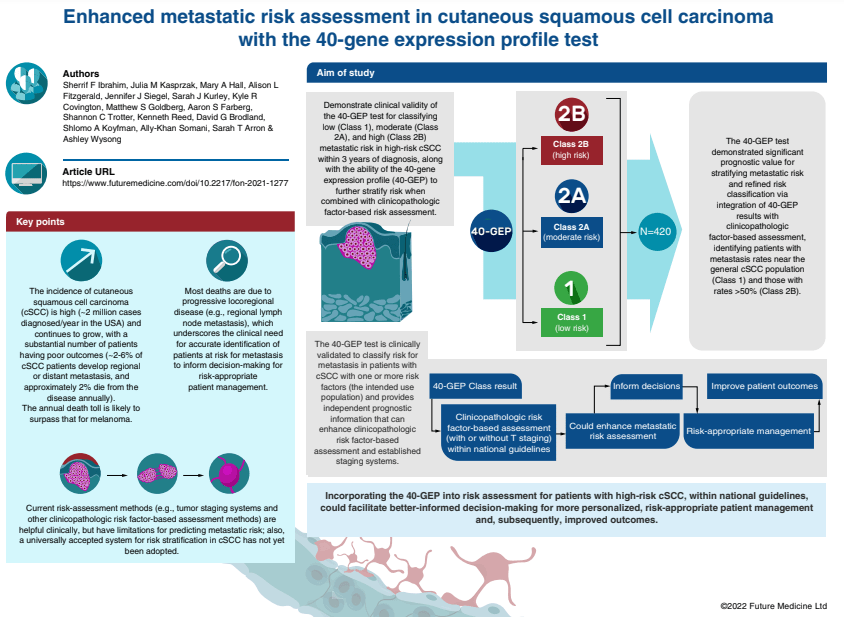Enhanced metastatic risk assessment in cutaneous squamous cell carcinoma with the 40-Gene Expression Profile Test

There are around 2 million diagnosed cases of cutaneous squamous cell carcinoma (cSCC) every year in the USA, of which, an estimated 2–6% of patients develop regional or distant metastasis. This number continues to grow, meaning there is an increasing number of patients with poor outcomes. Due to impact that metastatic disease development has on the survival of patients with cSCC, there is a need for effective identification of patients with a high risk of metastasis. The latest research article, published in our partner journal Future Oncology, investigated the combination of molecular profiling with clinicopathologic risk factor assessment, which could help to enhance the identification of patients with cSCC at risk of metastatic disease.
Abstract
Aims: Clinically validate the 40-gene expression profile (40-GEP) test and evaluate coupling the test with individual clinicopathologic risk factor-based assessment methods. Patients & Methods: In a 33-site study, primary tumors with known patient outcomes were assessed under clinical testing conditions (n=420). The 40-GEP results were integrated with clinicopathologic risk factors. Kaplan-Meier and Cox regression analyses were performed for metastasis. Results: The 40-GEP test demonstrated significant prognostic value. Risk classification was improved via integration of 40-GEP results with clinicopathologic factor-based assessment, with metastasis rates near the general cSCC population for Class 1, and >50% for Class 2B. Conclusion: Combining molecular profiling with clinicopathologic risk factor assessment enhances stratification of cSCC patients and may inform decision-making for risk-appropriate management strategies.
View the infographic here:
Take a look at the full In Focus to find out more about this paper here >>>





